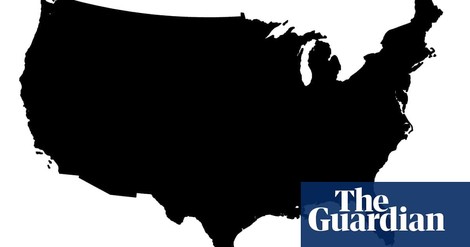Your podcast discovery platform
Curious minds select the most fascinating podcasts from around the world. Discover hand-piqd audio recommendations on your favorite topics.

piqer for: Boom and bust Global finds
I am a Dutch journalist, writer and photographer and cover topics such as human rights, poverty, migration, environmental issues, culture and business. I’m currently based in The Hague, The Netherlands, and frequently travel to other parts of the world. I have also lived in Tunisia, Egypt, Kuwait and Dubai.
My work has been published by Al Jazeera English, BBC, The Atlantic's CityLab, Vice, Deutsche Welle, Middle East Eye, The Sydney Morning Herald, and many Dutch and Belgian publications.
I hold an MA in Arabic Languages and Cultures from Radboud University Nijmegen and a post-Master degree in Journalism from Erasmus University Rotterdam. What I love most about my work is the opportunities I get to ask loads of questions. Email: [email protected]
The Map Of The US Doesn’t Tell The Whole Story
Daniel Immerwahr wrote the book How to Hide an Empire: A Short History of the Greater United States:
The British weren’t confused as to whether there was a British empire. They had a holiday, Empire Day, to celebrate it. France didn’t forget that Algeria was French. It is only the US that has suffered from chronic confusion about its own borders. The country perceives itself to be a republic, not an empire. It was born in an anti-imperialist revolt and has fought empires ever since.
At the turn of the 20th century, when the United States acquired Puerto Rico, the Philippines, Guam, American Samoa, Hawaii, Wake, their status was clear. They were called colonies. Within a decade or two, it seemed better to stick with a gentler term, used for them all: territories.
When have you ever seen a map of the US that had Puerto Rico on it? Or American Samoa, Guam, the US Virgin Islands, the Northern Marianas or any of the other smaller islands that the US has annexed over the years?
Today, the US continues to hold overseas territory. Besides Guam, American Samoa, the Northern Mariana Islands, Puerto Rico, the US Virgin Islands and a handful of minor outlying islands, there are roughly 800 overseas military bases around the world.
The book’s author studied US foreign relations and read countless books about “American empire” – the wars, the coups, the meddling in foreign affairs. “Nobody ever expected me to know even the most elementary facts about the territories. They just didn’t feel important.”
Race has been even more central to US history than is usually supposed, he thinks.
The racism that had pervaded the country since slavery also engulfed the territories. Like African Americans, colonial subjects were denied the vote, deprived of the rights of full citizens, called racial epithets, subjected to dangerous medical experiments and used as sacrificial pawns in war. They, too, had to make their way in a country where some lives mattered and others did not.
